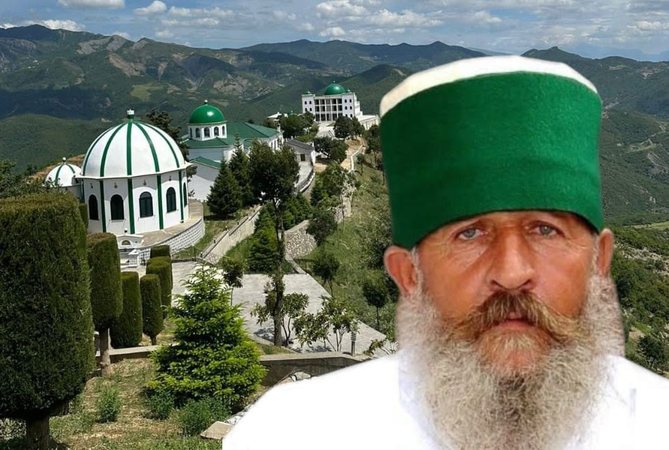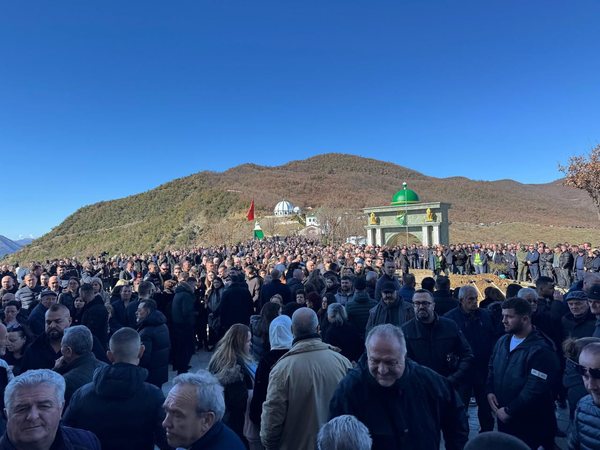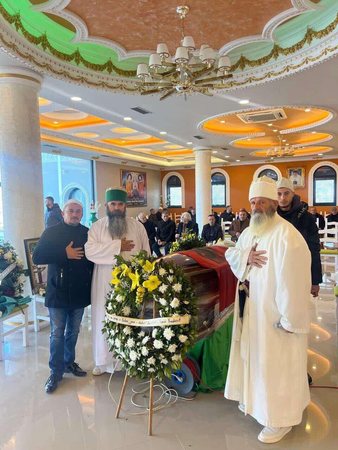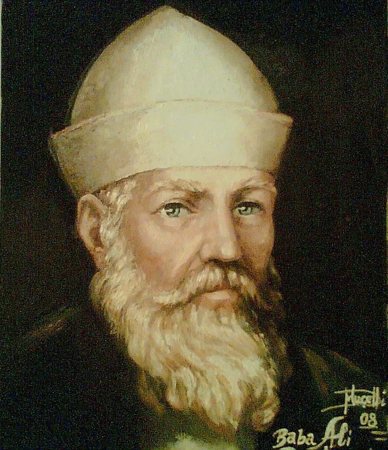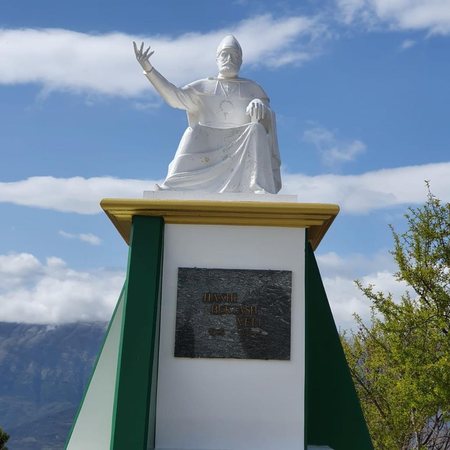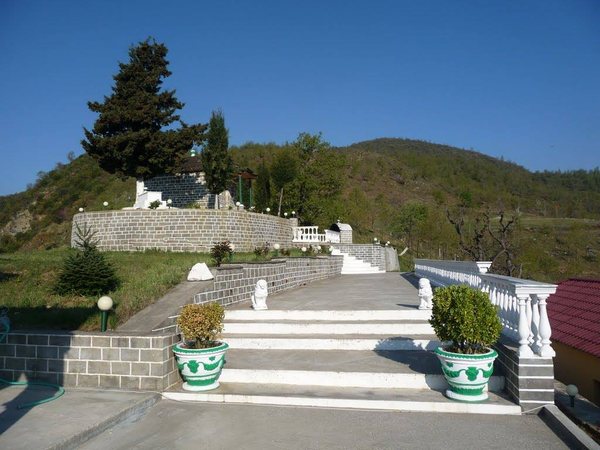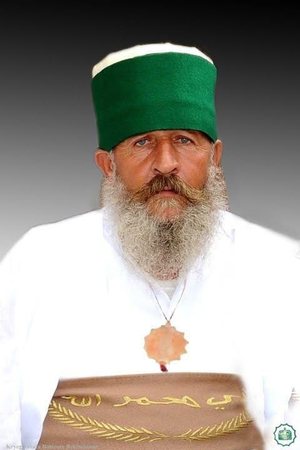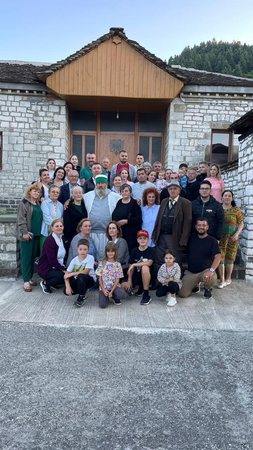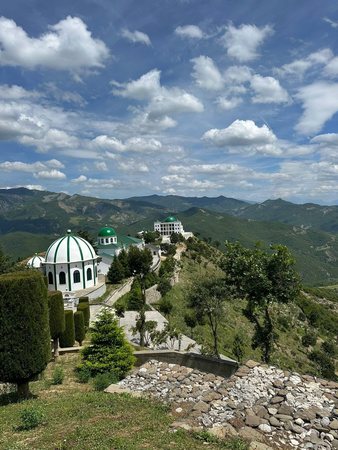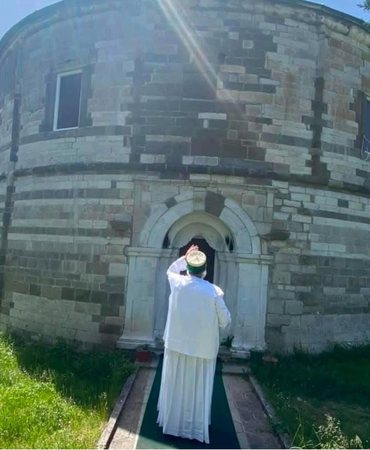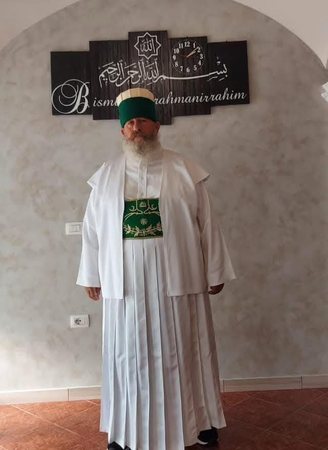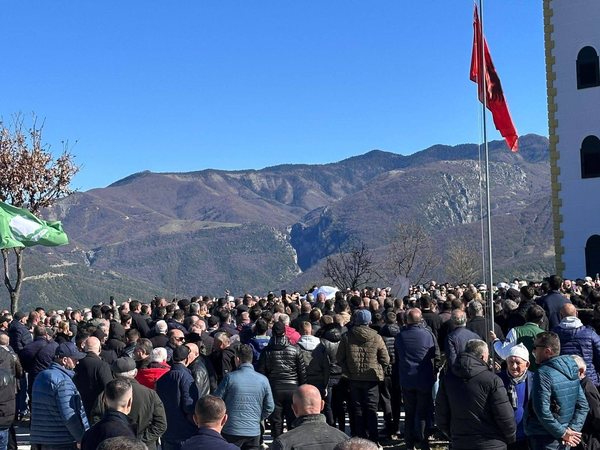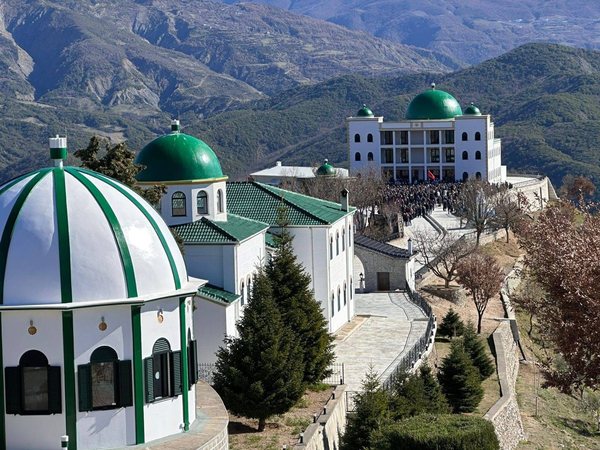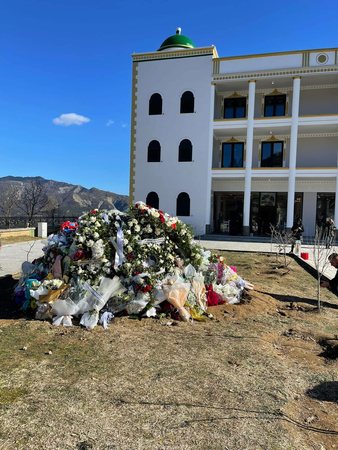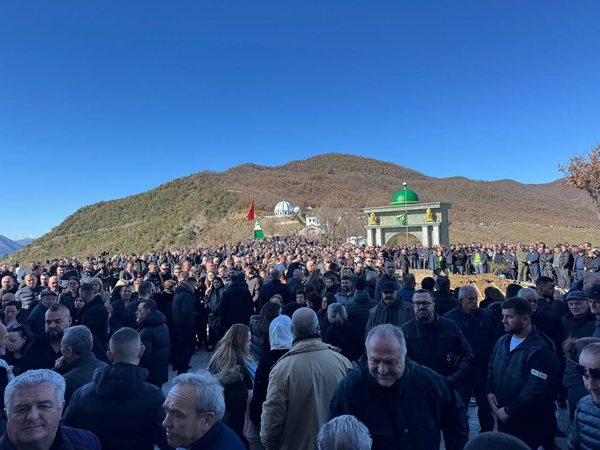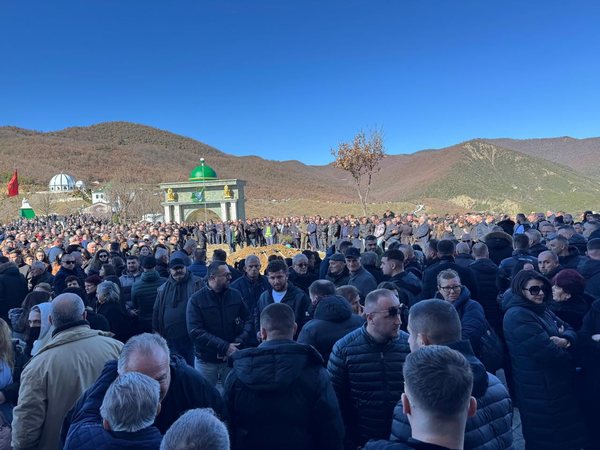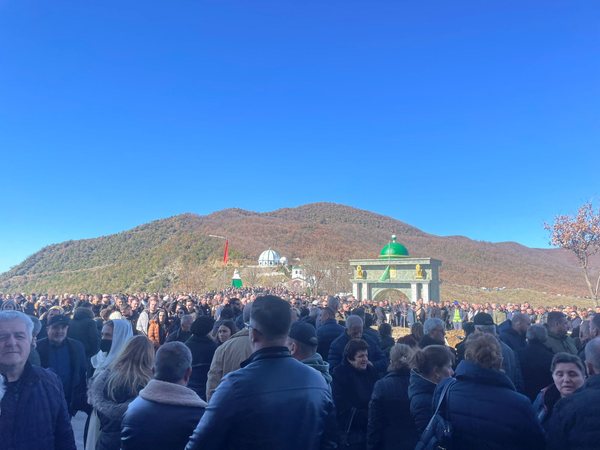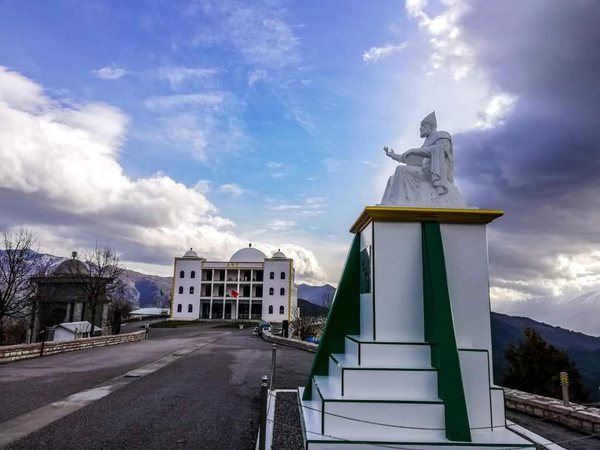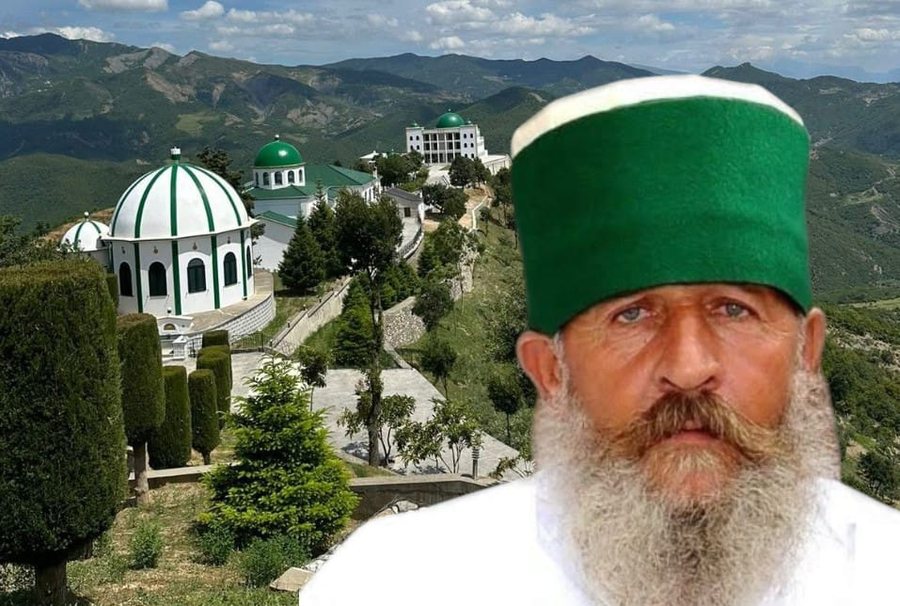
By Entela Kaloti
“Baba Hekurani of Alipostivan passes away”.
This was the first notification I received on my cell phone on the morning of February 4. Although as a journalist I have gained a kind of immunity from the circulation of thousands of news stories during my career, this time every letter gripped me completely.
It had always seemed to me that for him there could be no death like all other people, even though his earthly work for the Bektashis was translated into a divine work.
I could not get used to the idea that a man who had been inseparable from my family, in joys, sorrows, births, marriages, birthdays or misfortunes, was being physically separated from us.
He was always there, just like for many other believers who had Baba Hekurani as a compass of orientation whenever they lost their way to the God in whom they believed.
As I was recovering from the news, I was thinking that the hearts of believers would now be as empty as the room in my parents' house that had been christened the "dervish's room," since he often came there and we had tried not to miss the paintings and photographs of Bektashi saints.
But how did Baba Hekurani, after the fall of communism, become the most trusted cleric of Bektashiism, resurrecting it with the spirit of love, faith, and patriotism, in the light of our rebirth?
In this tribute, I will tell you more about him, from an immigrant in Greece to the man whose life's mission was to make the lives of believers better.

How did I know him?
Standing tall, with a hat on his head and majestic, he appeared in the yard of my family's house in Muçenj, Përmet.
This was my first introduction to Baba Hekurani on a summer day in the early 2000s. He was only 37 years old when he had just returned from Greece and had started work on the construction of the Alipostivan tekke, without yet donning the robe of a Bektashi cleric, but with a firm authority.
Disbelieving at the time and skeptical of his mission, I was surprised that my parents, and especially my grandmother, openly expressed their support and had blind faith in the initiative he had just undertaken.
Apparently his light had touched their hearts. But not only theirs, but of all the families of that small village and many residents of the area.
Until then, I knew very little about the Bektashi faith, despite the fact that my family belonged to this faith.
My interest was also low due to the fact that during my studies in Tirana I attended the Biblical Baptist Church and, although I respected them, I did not pay much attention to other faiths.
However, I enjoyed following the conversations between my father and Baba Hekurani, which focused on the Bektashi religion, the history of the tekkes of the region, mainly on the Frashëri Tekke and the fathers and saints who had served in it.
Sometimes, there was also the tekke songs, which they sang in the evenings. But as I said at the time, I had neither the interest nor the maturity to listen to them attentively, and this is my obstacle; that I cannot remember many stories and events that my father told me.

An oak and a cypress, how did the construction of the Alipostivan Tekke begin from the ashes?
Baba Hekurani did not wait long to fulfill the dream that turned it into a life mission. While he had begun work on the construction of the Alipostivan Tekke from the ashes, founded in 1867 by Baba Ali and destroyed during the dictatorship, Baba Hekurani moved to the holy Bektashi headquarters in Tirana and shortly after was appointed dervish in Alipostivan.
What surprised me again was that on April 4, 2002, as he put on the cleric's robe, many residents of the Përmet area, including my father, had followed him to Tirana to support him during the religious ceremony.
After returning there, where he found only an oak and a cypress, he put his life at the service of people and faith with devotion, dignity and dedication. Through his testimonies, but also his ability and wisdom, he identified everything needed to start work from scratch in Alipostivan, in the small village of the Piskovo Administrative Unit, located about 19 km from the city of Përmet.
Initially, he erected the tombs where some of the holy Bektashi clerics rest, and then, stone by stone, with the good and correct management of the believers' contributions, he created a true ensemble of architectural works.

Seeing his work and dignity, my brother Dash Muçelli, had the desire to create the sculpture of Haxhi Bektashi, the symbol of the Bektashi religion, which stands proudly at the entrance to the tekke, taking pictures of every visitor. He also created paintings of Baba Ali and Baba Hajdar.

At its entrance is a large gate with the inscription: “Baba Aliu Alipostivan Tekke -1857” built with a high vault and several types of stone. The Tekke buildings are white and the outlines are green, like the Bektashi flag, while the national flag flutters at its top. Cleanliness prevails everywhere.
With the same spirit, correctness and honesty, Baba Hekurani also dedicated himself to the Frashëri Tekke, preserving its cultural values, as well as other tekkes in the area.
May 14th is the designated date for all believers to make a pilgrimage to the Alipostivan Tekke, which lies on top of a hill, overlooking the Vjosa valley and Dhëmbeli and Nemërçka in front.

Beyond faith, his word healed
With the work he did to build that tekke, but also to expand them to many villages in the Përmet region and beyond, support for Baba Hekurani grew and grew. In a short time, it crossed the borders of the area, but also of the country. From all regions, even outside Albania and as far as the United States, many people found faith and hope in him.
He was the support in every situation, he was the voice we wanted to hear. His wise thoughts, kindness, positivity, love and respect with which he treated both great and small, were the solution to many problems, they were comfort. In awkward or difficult situations, we all sought his divine advice. He was the first thought in every dilemma. His word healed.
In less than 10 years, Baba Hekurani's fame had grown so much that it had even crossed the boundaries of faith.
It was no longer just the Bektashis who admired their cleric, but also people of other faiths. An Orthodox friend of mine once asked me for his number and to arrange a meeting with him, as the line of people to meet him was very long. She told me that many of her friends had found solutions to their problems with Baba Hekurani. And as he himself said; both the Muslim and the Christian are of God.
Thanks to him, the Alipostivan Tekke, in addition to its religious role, had also become a tourist destination and a cultural monument, with many people visiting it, including rulers, officials, businessmen, tourists from all over the world, and ordinary people.
The bad road and the lack of asphalt did not prevent those thousands of believers and citizens from visiting the Tekke on the top of the hill, whenever they were given the opportunity, as his good energy attracted them. His influence in the entire southern area was unparalleled. From Ylli Baka to Dule Malindi and other singers, from Përmet to Skrapar, Tepelena and Vlorë, many folk songs were dedicated to his work that had begun to speak.

The fate of the Tekke after the departure of Baba Hekurani
Many of the believers and those present at Baba Hekurani's farewell ceremony expressed concern about the continuation of work at the Alipostivan Tekke. There were also skeptics who said that there could be no other like it, while along the road were still the stones collected at the behest of Baba Hekurani for the construction of the cobblestones in front of the entrance gate.
According to the statute, until the 40th anniversary of his passing, the Tekke will be led by its Council and then the successor of Baba Hekurani will be announced. The Patriarch of the Bektashis, in agreement with the members of the Tekke, must appoint a successor; either a dervish or a baba to continue the work in the Tekke of Alipostivan. Let us hope that he will come to lead with the same honesty and devotion as Baba Hekurani.
Whoever serves in that nest of faith will find it even more difficult than Baba Hekurani did, because perhaps sometimes it is easier to build concrete works than to continue and advance a work of human greatness that our beloved cleric left behind.

Last meeting
Meetings with Baba Hekurani, although at first glance they were very simple, always marked moments that could not be erased from memory. I remember when in the Frashëri Tekke, as we started to thank him for his service, he asked us to be silent because he was the one who should express gratitude to the people who supported him in the mission he had undertaken.
A mission that in 25 years of his life he placed at the service of Bektashism, the God he believed in, and the people he served with love, work, and dedication. Like any true love, it is a story of transformation…

Telegraphically, who was Baba Hekurani?
According to information published on the official Facebook page of the Alipostivan Tekke, Baba Hekuran Nikollari was born on September 7, 1963 in Seniçan, Përmet. He grew up with the dedication and great love of his parents, who gave him the honesty, kindness, education, and wisdom that accompanied him throughout his life.
His father, Fejzua, passed away in 1985, and his mother, Vezirja, in 2010. He was the brother of 6 sisters and two brothers.
Baba Hekurani completed primary and 8-year school “Riza Velçishti” in Seniçan. Then, he continued his secondary education at the “Kamber Bënja” school in Bënja. From a young age, he started working to help his family, showing a rare dedication and spiritual strength.

In 1992, he emigrated to Greece, where he worked for 8 years away from his homeland. In 2000, he returned to his native village, Seniçan, where he began his spiritual path, a path that would change not only his life, but also that of many Bektashi believers in the South of the country and beyond.
In Seniçan, he rebuilt the Mekam at the place called "Ahuri i Nakove", which is today known as "I miri i Nakove".
On March 22, 2001, Baba Hekurani went to Alipostivan and began work on rebuilding the Tekke of Baba Ali, which had been destroyed in 1967. With the help and support of many families in the area, they initially built the tomb of Baba Ali Khorasani, with the blessing of the World Patriarch, Haxhi Dede Reshat Bardhi.
On April 4, 2002, after a period near the Holy See in Tirana, Haxhi Dede Reshat Bardhi clothed him in the Bektashi robe and appointed him a dervish in the Ali Horasani Tekke in Alipostivan, Përmet.
In the years 2007-2009, Baba Hekurani was appointed and served as dervish at the Frashëri Tekke, reviving it and preserving its historical and cultural authenticity. Today, this tekke is a true monument of Bektashi faith and history and is visited by people from all over the world.

Baba Hekurani served in the Kulmak Tekke, on Mount Tomorri, for several years.
On December 29, 2009, by Holy Decree No. 7 of the World Patriarch of the Bektashis, Saint Haxhi Dede Reshat Bardhi, Hekuran Fejzo Nikollari was granted the high title of "Baba", being appointed head of the Tekke of Baba Nasibiu in Frashër, the Tekke of Baba Aliu in Alipostivan and the Tekke of Baba Xhaferi in Përmet.
In recognition of his life and extraordinary contribution, Baba Hekurani was honored with important titles:
* "Honorary Citizen", awarded by the Municipal Council of Poliçan.
* “Honor of Frashëri”, awarded by the Frashëri Municipal Council (Decision No. 19, dated 21.03.2015).
* "Naim Frashëri Golden Order", awarded by the President of the Republic of Albania.
With his dedication and tireless work, Baba Hekurani devoutly led the Tekke of Alipostivan, Frashëri, and that of Baba Xhaferi in Përmet. One of his most important works was the construction from the foundations of the Tekke of Cfrat in Bual, Përmet, a wonderful shrine.
He identified all the tekkes, tombs and holy sites in the Përmet area, leaving an indelible mark on the history of Bektashism.

Baba Hekurani was passed away on February 6, 2025 amidst the prayers of thousands of believers, where Alipostavani this time did not call us to celebrate the feast of Baba Ali, but to honor the memory of a man who will remain as a temple of pride, not only for those who believe in God, but also for those who believe in the power of people with dignity, who even when they die always live among us. (A2 Televizion)

